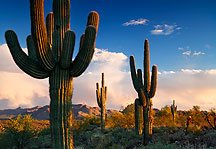 The following is a transcript of a speech from Senator Barack Obama last fall, in which he focused on America's energy future.
The following is a transcript of a speech from Senator Barack Obama last fall, in which he focused on America's energy future.While I understand it's a lengthy read (and therefore lengthy post), I find it to offer a compelling case study on the future of clean energy under an Obama Administration.
While this event occurred a few months back, it's anything but outdated... it basically outlines Obama's view of how to address issues surrounding energy needs and the environment in the future... a policy that will help the country move forward in the right direction.
I'll let the distinguished Junior Senator from Illinois take the floor now... S
Portsmouth , NH
"Two weeks ago, representatives from some of the world's largest emitters of greenhouse gases were invited to
For a brief moment, there was a hope that maybe this conference would be different - that maybe
Instead, the world traveled thousands of miles to
Struggling just to stay relevant.
That is not the
That is the
We have not fallen behind on energy due to a lack of ingenuity or initiative from the American people. I have seen too much innovation and possibility in this country to believe that. Right here in
But
And it's also a failure of our politics that pre-dates the presidency of George W. Bush. We have heard promises about energy independence from every single U.S. President since Richard Nixon - Republicans and Democrats. We've heard proposals to curb our use of fossil fuels in nearly every State of the Union address since the oil embargo of 1973. Back then we imported about a third of our oil. Now we import over half. Back then global warming was just the theory of a few scientists. Now it is a fact that threatens our very existence.
The truth is, our energy problem has become an energy crisis because no matter how well-intentioned the promise - no matter how bold the proposal - they all fall victim to the same
There are some in this race who actually make the argument that the more time you spend immersed in the broken politics of
Now, I know that some of these policies are difficult politically. They aren't easy. But being President of the
When I arrived in the U.S. Senate, I wanted to do whatever I could to make real progress toward energy independence. I reached across the aisle to pass a law that will give more Americans the chance to fill up their cars with clean biofuels. I passed a law that will fuel the research needed to develop a car that will get 500 miles to the gallon. I even voted for an energy bill that was far from perfect because I was able to ensure that it contained some real investments in renewable sources of energy. And I've fought to eliminate the tax giveaways to oil companies that were slipped into that bill - oil companies that have spent half a billion dollars lobbying Congress in the last ten years while their profits have risen to record highs.
And I did something else. I knew that
So I decided to try something new. I reached across the aisle to come up with a plan to raise our fuel standards that won support of lawmakers who had never supported raising fuel standards before. And I didn't just give a speech about it in front of some environmental audience in
Now I have to admit - the room was pretty quiet after that. But I said what I did because I believe
We can't afford the same kind of caution when the future of our security is at stake. We know that the money that
We can't be afraid to stand up to the oil and auto industry when the future of our economy is at stake. When we let these companies off the hook; when we tell them they don't have to build fuel-efficient cars or transition to renewable fuels, it may boost their short-term profits, but it is killing their long-term chances for survival and threatening too many American jobs. The global market is already moving away from fossil fuels. The question is not if a renewable energy economy will thrive in the future, it's where. And if we want that place to be the
Most of all, we cannot afford more of the same timid politics when the future of our planet is at stake. Global warming is not a someday problem, it is now. In a state like
This is not the future I want for my daughters. It's not the future any of us want for our children. And if we act now and we act boldly, it doesn't have to be. But if we wait; if we let campaign promises and State of the Union pledges go unanswered for yet another year; if we let the same broken politics that's held us back for decades win one more time, we will lose another chance to save our planet. And we might not get many more.
I reject that future. I would not be running for President if I didn't believe that this time could be different. Not because I have some perfect solution that every other expert and candidate has somehow missed. Not because I think I can lock myself in the White House with a secret task force and get this done on my own. But because I believe the American people are ready for a President who can unite us around a common purpose again. I believe that we are ready to lead again.
Make no mistake - developing the next generation of energy will be one of the greatest challenges that this generation of Americans will ever face. It will not be easy. It will not come without cost or without sacrifice. And if anyone tries to tell you otherwise, they are either fooling themselves or trying to fool you.
I will set big goals for this country as President - some so large that the technology to reach them does not yet exist. But that has not stopped us before. When President Roosevelt's advisors informed him that his goals for wartime production were impossible to meet, he waved them off and said "believe me, the production people can do it if they really try." And they did. When the scientists and engineers told John F. Kennedy that they had no idea how to put a man on the moon, he told them they would find a way. And we found one.
I believe we will again.
In the speech I gave in
Today I want to lay out the second part of my plan - a set of proposals that will allow
After all, in meeting the challenges of earlier generations, we didn't just end a costly war or beat the Soviets to the moon - we also unleashed opportunities we had never dreamed of. The GI Bill sent an entire generation of Americans - including my grandfather - to college and then on to the middle-class. Legions of scientists and engineers emerged from our race to space whose discoveries and innovations have forever changed the world.
This same opportunity exists today. That's why my plan isn't just about making dirty energy expensive, it's about making clean energy affordable - a project that will create millions of new jobs and entire new industries right here in America.
The first step in doing this is to phase out a carbon-based economy that's causing our changing climate. As President, I will set a hard cap on all carbon emissions at a level that scientists say is necessary to curb global warming - an 80% reduction by 2050. To ensure this isn't just talk, I will also commit to interim targets toward this goal in 2020, 2030, and 2040. These reductions will start immediately, and we'll continue to follow the recommendations of top scientists to ensure that our targets are strong enough to meet the challenge we face.
In addition to this cap, all polluters will have to pay based on the amount of pollution they release into the sky. The market will set the price, but unlike the other cap-and-trade proposals that have been offered in this race, no business will be allowed to emit any greenhouses gases for free. Businesses don't own the sky, the public does, and if we want them to stop polluting it, we have to put a price on all pollution. It's time to make the cleaner way of doing business the more profitable way of doing business.
There is no doubt that this transition will be costly in the short-term. To make it easier, we will provide assistance to Americans who need help with their energy bills. We'll help families make their homes more energy efficient, and we'll help workers and factories retool their facilities so they can compete and thrive in a clean energy economy. And once we make
Once we make dirty energy expensive, the second step in my plan is to invest $150 billion over the next decade to ensure the development and deployment of clean, affordable energy.
That starts with the next generation of biofuels. We know that corn ethanol has been the most successful alternative fuel we have ever developed. I've been a champion for ethanol. In just two years, the Renewable Fuel Standard I helped pass has sparked an historic expansion of ethanol production. It has helped displace foreign oil and strengthen our rural economy. And we should fight the efforts of big oil and big agri-business to undermine this emerging industry.
But the truth is, corn ethanol is neither the perfect nor the permanent answer to our energy challenge. There are legitimate economic and ecological concerns about an over-reliance on corn-based ethanol. And even if we double or triple its production, it won't replace even a tenth of our demand for gasoline. That's why we must invest in the next generation of advanced biofuels like cellulosic ethanol that can be made from things like switchgrass and woodchips. The struggling paper mills in New Hampsire would be back in business if they could use wood to produce biofuels. We should set a goal to produce the first two billion gallons of advanced biofuels by 2013. And we should make sure that more local farms and local refineries have the chance to be a part of this new industry.
We'll also invest in clean energy sources like wind power and solar power, so that by 2025,
And we must find a way to stop coal from polluting our atmosphere without pretending that our nation's most abundant energy source will just go away. It won't. It will also require taking steps to ensure that
We will also explore safer ways to use nuclear power, which right now accounts for more than 70% of our non-carbon generated electricity. We should accelerate research into technologies that will allow for the safe, secure treatment of nuclear waste. As President, I'll continue the work I began in the Senate to ensure that all nuclear material is stored, secured and accounted for - both at home and around the world. There should be no short cuts or regulatory loopholes - period.
Many of these clean energy technologies - from biofuels to solar power to carbon sequestration - are being developed in research labs and facilities all across
This will change when I am President. I will launch a Clean Technologies Venture Capital Fund that will provide $10 billion a year for five years to get the most promising clean energy technologies off the ground. This venture capital fund will get new technologies from the lab to the marketplace so that in the next few years, the American economy can benefit from
The third step in my plan to combat climate change is to call on businesses, government, and the American people to make
We will start by dramatically improving the efficiency of our buildings, which currently account for nearly half of all carbon emissions in
We will also start replacing our outdated power grid with a digital smart grid so that we don't lose precious energy and billions of dollars like we did in the 2003
Now, none of these steps will happen overnight. They will take time, they will take sacrifice, and they will take a sustained commitment from the American people. As President, I will lead this commitment. I will not be outlining these goals in my State of the
And there is one step I will take as soon as possible.
From the moment I take office, I will invite the world back to
I will personally reach out to the leaders of the biggest carbon emitting nations in both the developed and developing world and ask them to join
And as we develop new forms of clean energy here at home, we will share our technology and our innovations with all the nations of the world. If we can build a clean coal plant in
Recently, the director of a nonprofit that helps promote clean energy policies in
I believe it's time the world could point to
And most of all, I want our children and our children's children to point to this generation and this moment as the time when
---Barack Obama
















No comments:
Post a Comment